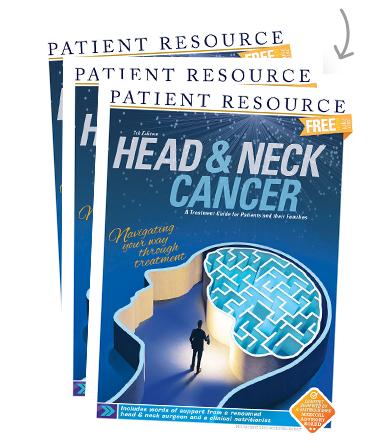Head & Neck Cancer
Clinical Trials
Clinical trials rely on volunteers to help doctors search for new and better ways to prevent, diagnose, treat and cure cancer, and they are a critical component of cancer research. These highly regulated studies evaluate whether a new treatment, such as a drug, drug combination, surgical procedure, type of radiation therapy or a combination of therapies, is equally or more effective than the current standard of care.
You are encouraged to discuss a clinical trial with your health care team early in your care, especially if it has not been mentioned already. Regardless of where you are in the continuum of care – newly diagnosed or ready for a new option – clinical trials offer possible access to state-of-the-art treatments. Depending on your unique situation, a clinical trial may even be your best first option. Your medical team will guide you through the process if that is the next step. You can also help search for clinical trials on your own (see below).
As with any cancer treatment, those used in clinical trials present potential benefits and possible risks. They often have extra time commitments as well. It is important to be able to accommodate the tests and appointments that are required for the trial.
Using the resources in the back of this guide and those from your health care team, learn more about this potential treatment option so you can make an educated treatment decision. It may ease your mind to know that most of the advances made in treating cancer today were once developed, tested and evaluated through the clinical trials process and were approved by the U.S. Food and Drug Administration (FDA). By simply participating, you will be a partner in cancer research, helping improve treatments for future patients.
If you are interested in participating in the future of cancer care but prefer not to join a therapeutic trial, consider a non-treatment trial that evaluates the following:
- Disease prevention and patient screening methods
- Diagnostic tools and procedures
- Genetic risk factors
- Ways to improve health and/or quality of life
Searching for a clinical trial
Let your doctor know if you are interested in learning more about clinical trials that may fit into your treatment plan. While they search, you can, too.
Have your exact diagnosis, pathology report and details of previous treatments available. These will help you narrow the list of active trials to those that may be a good fit for you.
Search online. Many websites offer ways to search for a clinical trial. Some are customized to a certain cancer type; others are much broader. Generally, clinical trial search sites are hosted by the government, the National Cancer Institute, cancer advocacy groups, pharmaceutical companies and industry trade organizations, academic medical centers and major hospitals. No single list contains every open clinical trial, and new trials are continually being added, so check back often.
Request assistance by phone call. This is convenient for people who are not tech savvy, do not have access to the tools necessary to search online or simply prefer to talk to a person.
Consider many factors. As you search, look for trials that include your cancer type, age, location and the distance you are willing to travel.
Identify potential trials. Discuss those you find with your doctor to determine whether you may be eligible. Every participant in a specific trial must meet the same criteria to ensure the data gathered during the trial is valid. Common criteria include cancer type, subtype, stage, biomarker status and treatment history. You may not qualify for every trial that appeals to you. Some may be closed, or you may not meet eligibility criteria. For example, if a trial requires that you have already had a specific treatment and you have not, you will not be eligible. Under certain extreme conditions, you and your doctor may apply to the FDA to join a clinical trial that is closed or otherwise inaccessible. This is known as Expanded Access, also called Compassionate Use.



